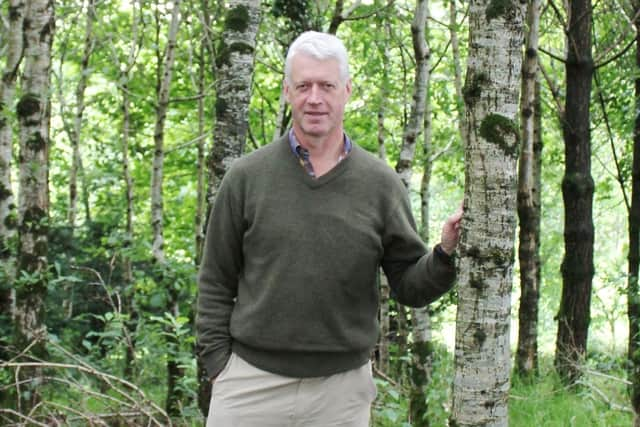Fast growing conifers play a key role in sequestering CO2
and live on Freeview channel 276
The recently launched publication was compiled by staff at Forest Research.
The organisation is the UK’s principal organisation, involved in forestry and tree-related research.
Advertisement
Advertisement
Its most recent report is entitled: ‘quantifying the sustainable forestry carbon cycle’.


Specifically, it confirms that fast growing sitka plantations (thinned) can sequester up to 14tCO2/ha/yr. Next in order of sequestration rate comes fast growing conifer plantations (unthinned) at 11.1t, followed by conifer plantations (thinned) at 8.9t.
For comparison purposes, broad leaf plantations that are lightly managed can deliver a sequestration rate of only 5.7t.
Premier Woodlands; managing director John Hetherington commented:
Advertisement
Advertisement
“The Forest Research works nails the myth that fast growing sitka and other confirm options do not have a role to play in the development of Northern Ireland’s forestry and woodland development strategies for the future.
“The fact is that they do. It makes absolute sense that the Department of Agriculture, Environment and Rural Affairs, in tandem with Forest Service, should take full account of this reality as they plan for the future.”
The work undertaken by Forest Research constitutes a systematic analysis of the rate of net CO2 uptake over time as a result of creating a wide range of different types of woodland in the UK.
The study includes the potential to avoid emissions in the future through using wood products in place of other materials and fuels. Twelve types of woodlands were analysed covering coniferous and broadleaf woodlands as well as naturally re-colonising woodland on abandoned land.
Advertisement
Advertisement
The results show that all the woodland types deliver significant net CO2 uptake over a 100 year period, and nearly all in the 2022 to 2050 period. None result in significant net greenhouse gas (GHG) emissions during this time.
In addition, wood products can provide a significant store of carbon and can avoid emissions when they substitute for other materials. These effects are most apparent for new woodlands managed for production over longer timescales, when these woodlands start to produce timber.
These contributions can be almost as important as carbon sequestration in the woodlands over this timescale.
Moreover, modelling results were consistent with experimental measurements of CO2 uptake rates where these were available.
Advertisement
Advertisement
Meanwhile, there has been a general welcome of the decision by farm minister Edwin Poots to re-open both the Forest Expansion Scheme (FES) & Small Woodland Grant Scheme (SWGS) in 2022, earlier than traditionally would have been the case.
The closing date for both measures is August 31st.
John Hetherington commented:
“The August closing date should mean that meaningful levels of planting can take place during the 2022/23 season.
“Up to now, the later application period has severely curtailed the number of projects that can be undertaken during a specific planting season.”
But according to the Premier Woodlands’ representative, amending the application date-related issue is only one of the problems that need fixing, where both forestry schemes are concerned.
Advertisement
Advertisement
He continued: “All of the costs associated with any planting project have escalated dramatically over the past 12 months: fencing, ground preparation work, fuel and the prices associated with the actual procurement of young trees.
“But the grant rates available for both FES and SWGS have not been changed. This matter must be remedied as a matter of priority before the start of the 2022/23 planting season.
“If this does not happen, then the number of land owners wanting to establish any form of woodland or new forestry plantation over the coming months will plummet.”
For further information, contact Premier Woodlands on (028) 7963 4236.